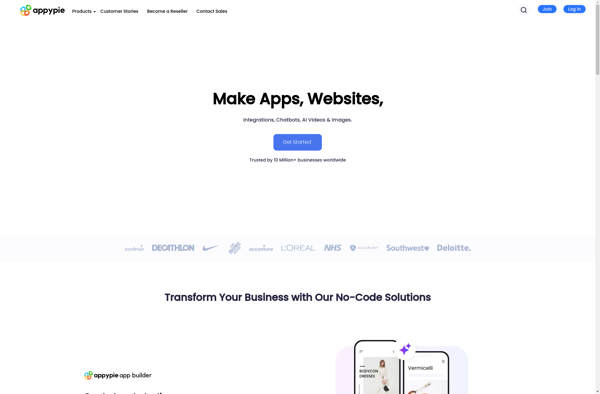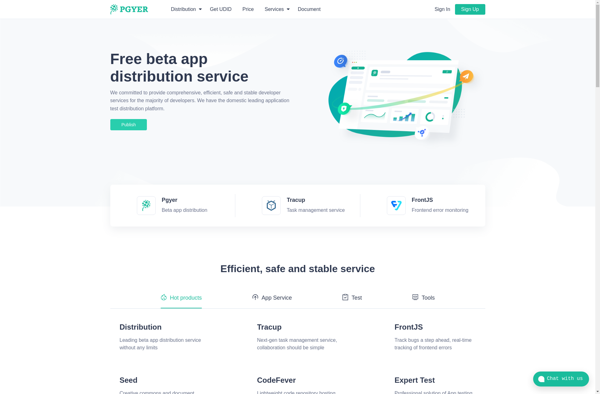Description: Appy Pie is a no-code application builder that allows users to create Android and iOS apps, as well as web apps, without coding. It provides a drag-and-drop interface and various templates to build fully-functional apps quickly.
Type: Open Source Test Automation Framework
Founded: 2011
Primary Use: Mobile app testing automation
Supported Platforms: iOS, Android, Windows
Description: PGYER is a mobile app distribution and analytics platform that allows developers to distribute beta versions, gather user feedback and monitor crash reports of their iOS, Android, Unity, ReactNative and Flutter apps. It integrates with GitHub, Bitbucket and GitLab for automated APK/IPA builds.
Type: Cloud-based Test Automation Platform
Founded: 2015
Primary Use: Web, mobile, and API testing
Supported Platforms: Web, iOS, Android, API

